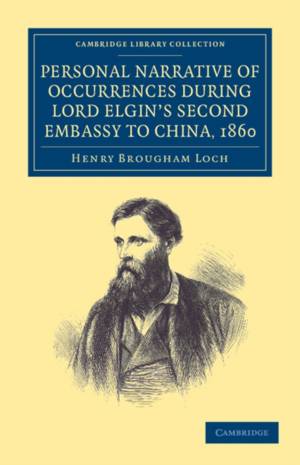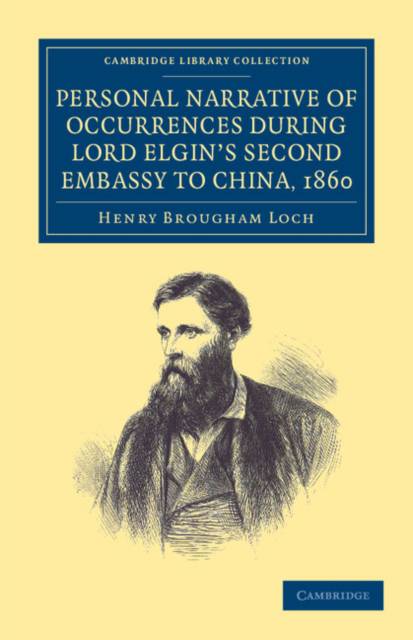
- Afhalen na 1 uur in een winkel met voorraad
- Gratis thuislevering in België vanaf € 30
- Ruim aanbod met 7 miljoen producten
- Afhalen na 1 uur in een winkel met voorraad
- Gratis thuislevering in België vanaf € 30
- Ruim aanbod met 7 miljoen producten
Zoeken
Personal Narrative of Occurrences During Lord Elgin's Second Embassy to China, 1860
Henry Brougham Loch
€ 70,95
+ 141 punten
Uitvoering
Omschrijving
In 1860, James Bruce (1811-63), the eighth Earl of Elgin, embarked upon a second embassy to China which aimed to obtain ratification of the Treaty of Tientsin and finally conclude the Second Opium War on terms favourable to the British. Accompanying Elgin as his private secretary was the enterprising army officer Henry Brougham Loch (1827-1900). Originally published in 1869, Loch's first-hand account of the mission reflects sustained concern over Britain's strained trading relationship with China in the nineteenth century. Notwithstanding his views regarding the need for European influence to shape China's future success in government, his clearly written narrative illuminates contemporary diplomacy and the events surrounding the Convention of Peking in October 1860. Prior to this outcome, Loch had been captured, imprisoned and brutally tortured by Chinese officials. His chapters detailing this experience and his eventual release are especially noteworthy.
Specificaties
Betrokkenen
- Auteur(s):
- Uitgeverij:
Inhoud
- Aantal bladzijden:
- 312
- Taal:
- Engels
- Reeks:
Eigenschappen
- Productcode (EAN):
- 9781108061360
- Verschijningsdatum:
- 27/06/2013
- Uitvoering:
- Paperback
- Formaat:
- Trade paperback (VS)
- Afmetingen:
- 140 mm x 216 mm
- Gewicht:
- 399 g

Alleen bij Standaard Boekhandel
+ 141 punten op je klantenkaart van Standaard Boekhandel
Beoordelingen
We publiceren alleen reviews die voldoen aan de voorwaarden voor reviews. Bekijk onze voorwaarden voor reviews.











